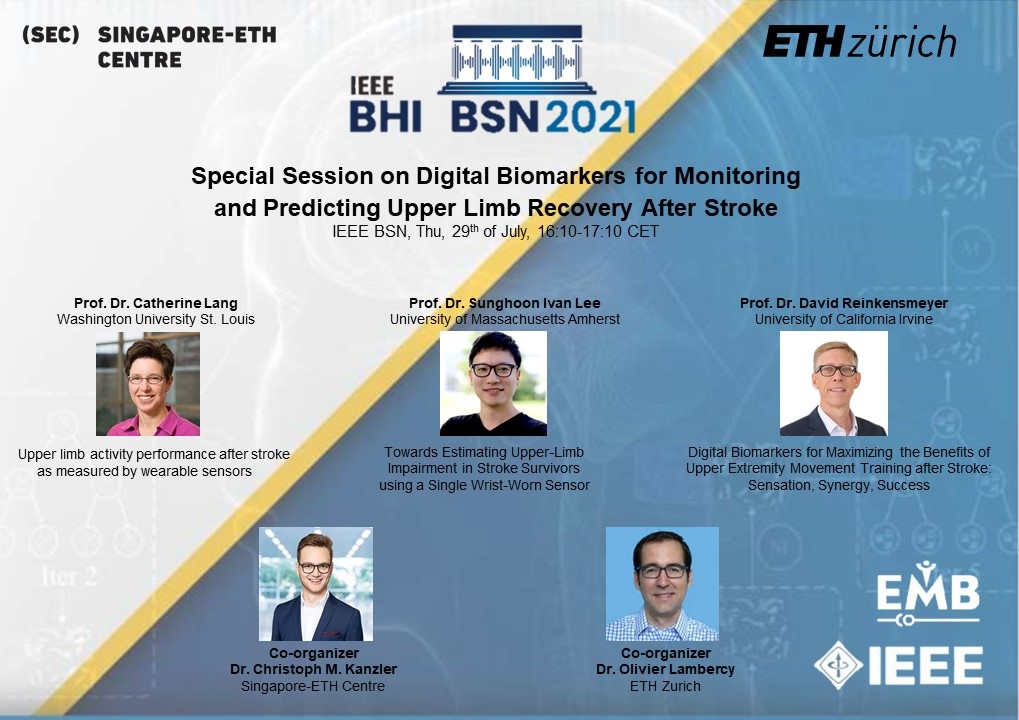Digital biomarkers for post-stroke limb recovery
29 Jul | The FHT conference session on digital biomarkers for post-stroke limb recovery addresses achievements and challenges in using digital biomarkers to monitor recovery and predict rehabilitation outcomes.

Stroke is a relatively common neurological injury and approximately 77 per cent of stroke survivors are left with upper limb sensorimotor impairments. As this negatively affects independence and quality of life of the stroke patient, upper limb recovery is often a primary target during neurorehabilitation. As such, tools are needed to accurately characterise upper limb sensorimotor impairments, such as describing these impairments, tracking recovery progress over time, and predicting rehabilitation outcomes.
Over the last decades, the research community has put a strong focus on sensor-based technologies that provide objective, precise, and sensitive "digital biomarkers" of upper limb sensorimotor impairments in clinical and real-world environments. However, the validation and clinical application of those biomarkers, as well as their integration into computational models to predict neurorehabilitation outcomes and influence clinical decision making remain challenging.
The special session “Digital Biomarkers for Monitoring and Predicting Upper Limb Recovery After Stroke” aims to revisit recent achievements in the promising field of using digital biomarkers, identify and discuss remaining grand challenges, and pave the way forward to address them.
Speakers:
- Prof. Dr Catherine Lang, Washington University St. Louis
- Prof. Dr Sunghoon Ivan Lee, University of Massachusetts Amherst
- Prof. Dr David Reinkensmeyer, University of California Irvine
The organising chairs of the session are Dr Christoph M. Kanzler, post-doctoral researcher in the Future Health Technologies (FHT) programme at the Singapore-ETH Centre and Dr Olivier Lambercy, senior researcher in FHT and deputy director of the Rehabilitation Engineering Laboratory, in the Department of Health Sciences and Technology at ETH Zurich. In FHT, both researchers are in the Connected Rehabilitation Technology and Assistive Devices research module.
The session is held as part of IEEE BHI-BSN 2021 – a joint conference of the IEEE-EMBS International Conference on Biomedical and Health Informatics (BHI’21) and the 17TH IEEE-EMBS International Conference on Wearable and Implantable Body Sensor Networks (BSN’21).